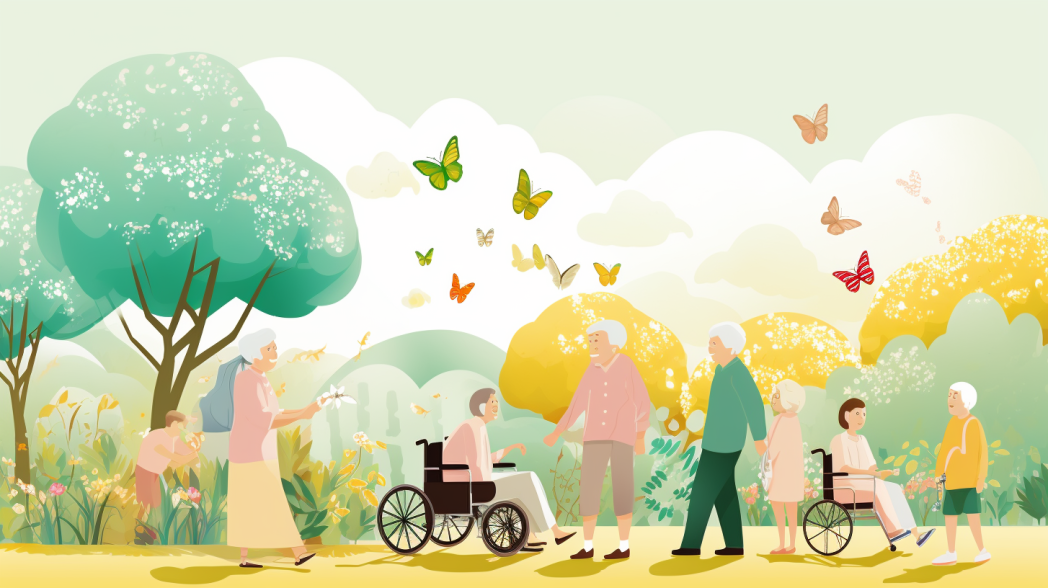Adjusting To The Emotional Aspects Of Retirement

Key Takeaways
- Retirement brings about a range of emotions, including feelings of loss and uncertainty. It’s important to acknowledge and address these emotions in order to maintain good mental health during retirement.
- Setting up a routine and engaging in activities that bring joy can help ease the transition into retirement. This includes spending time with friends, pursuing new hobbies, or even finding part-time work or volunteering opportunities.
- Building a new identity in retirement is an opportunity for personal growth and self-discovery. By exploring new interests and roles, retirees can find purpose and fulfillment in their post-work life.
- Maintaining social connections is crucial for overall well – being during retirement. Engaging in social activities, joining clubs or groups, or volunteering can combat loneliness and provide a sense of community.
Understanding the Emotional Journey of Retirement
 Retiring from work is a big change. It can feel like losing part of who you are. This feeling may bring up emotions that lead to depression or anxiety in retirement. Avoid keeping these feelings inside because it can lead to unhealthy ways of acting out. Setting up a routine helps make things feel normal again and keeps your mind healthy too. Doing fun things with friends can also help make you happy after retiring, so be sure not to lose touch! Some people even find new jobs they love and learn many good things from them after retiring.
Retiring from work is a big change. It can feel like losing part of who you are. This feeling may bring up emotions that lead to depression or anxiety in retirement. Avoid keeping these feelings inside because it can lead to unhealthy ways of acting out. Setting up a routine helps make things feel normal again and keeps your mind healthy too. Doing fun things with friends can also help make you happy after retiring, so be sure not to lose touch! Some people even find new jobs they love and learn many good things from them after retiring.The 5 Emotional Stages of Retirement
During retirement, individuals typically experience a range of emotions as they navigate through different stages: the pre-retirement planning phase, the honeymoon phase where initial freedom is enjoyed, the disenchantment phase where purpose may be questioned, the reorientation phase of building a new identity, and finally the stability phase of establishing a retirement routine.Pre-Retirement: The Planning Phase
In the pre-retirement phase, I make a plan for life after work. I think about what my days will look like. Will there be fun trips? How much time will I spend with family and friends? It’s also a phase of many questions. Do I save enough money? What are the healthcare needs? During this time, emotions start to stir up too. There is excitement but also fear or worry. This planning stage takes a lot of mental energy. But making plans now can lead to less stress in the future when adjusting to retirement becomes real. Setting small goals is important in this phase too. A goal could be saving more each month or learning about new hobbies that might fill up free times later on. Every small step moves me closer to a smooth change into retired life!The Honeymoon Phase: The Initial Freedom
The honeymoon phase is a time of joy in retirement. You are free from work and have lots of new things to try out. You can travel, read all those books you’ve been saving, or just sleep late every day. It feels like the start of a long vacation. But take care! This phase can stir up feelings that are hard to deal with. Things like loss of identity happen when we stop working for good. Some people may feel sad or worried during this time too. To stay healthy, it’s important not to hide these feelings but instead face them head-on.The Disenchantment Phase: Questioning Purpose
In the Disenchantment Phase, you might feel lost. The fun part of retirement starts to wear off. You may start asking “What now?” and worry about how to spend your time. It can feel lonely and boring without work in your life. This phase is not easy but it’s a normal part of adjusting to retirements.The Reorientation Phase: Building a New Identity
During the reorientation phase of retirement, individuals have the opportunity to build a new identity for themselves. This phase is all about exploring who you want to be in this next chapter of life and finding ways to reinvent yourself. It’s a time of self-discovery and personal growth, where you can try new things, pursue new hobbies or interests, and define your own sense of purpose. Building a new identity in retirement may involve exploring different roles such as volunteering, pursuing further education or training, starting a small business or taking on part-time work. By embracing this phase with an open mind and allowing yourself to explore various possibilities, you can create a fulfilling and meaningful retirement lifestyle that reflects your true self.The Stability Phase: Establishing a Retirement Routine
During the Stability Phase of retirement, individuals have the opportunity to establish a retirement routine that brings a sense of normalcy and fulfillment to their lives. By structuring their days and setting small goals, retirees can provide themselves with a sense of structure and purpose. This phase is all about finding activities that bring joy and satisfaction, whether it’s engaging in social activities, volunteering, or joining clubs or groups. Staying socially active and fulfilled is essential during this phase, as it helps retirees maintain connections with others and find meaning in their daily lives.Key Tips for Adjusting to Retirement
 Expect emotional stages during retirement and take steps to structure your days, set achievable goals, nurture social connections, consider an “encore” job or volunteering, create a new budget, and allow yourself flexibility to adjust.
Expect emotional stages during retirement and take steps to structure your days, set achievable goals, nurture social connections, consider an “encore” job or volunteering, create a new budget, and allow yourself flexibility to adjust.Expecting Emotional Stages
Retirement is a big life change, and it’s normal to experience different emotions during this transition. It’s important to understand that going through emotional stages is a natural part of adjusting to retirement. You may feel excited and relieved in the beginning, but then start questioning your purpose or feel dissatisfied later on. This is all part of the process. By acknowledging and accepting these emotional stages, you can better prepare yourself for what may come and find healthy ways to cope with your feelings. Remember, it’s okay to have ups and downs as you navigate this new chapter in your life.Structuring Your Days
Structuring your days in retirement is essential for maintaining a sense of normalcy and fulfillment. By establishing a routine, you can create a daily schedule that provides structure and purpose. Start by setting specific times for activities such as morning walks, hobbies, or even household chores. This will help you stay organized and give you a sense of accomplishment as you check off tasks throughout the day. Additionally, be sure to include time for socializing with friends or joining clubs and organizations that align with your interests. By structuring your days in retirement, you can make the most of this new phase of life and find joy in each day’s activities.Setting Small, Achievable Goals
Setting small, achievable goals in retirement is important for managing the emotional aspects of this stage in life. Retirement can often bring a sense of loss or uncertainty, so having clear goals can provide direction and purpose. These goals don’t have to be big or grandiose, but they should be realistic and meaningful to you. They could include things like learning a new hobby, taking up a part-time job or volunteering, improving your physical health through regular exercise, or even just spending more quality time with loved ones. By setting these smaller goals and actively working towards them, you can experience a sense of accomplishment and fulfillment that can help navigate the emotional journey of retirement.Nurturing Social Connections
Maintaining and growing friendships is crucial during retirement to prevent feelings of isolation. Engaging in social activities, volunteering, and joining groups or clubs can help retirees stay socially active. Building a strong support system and regularly connecting with other people can have a positive impact on mental health and overall well-being. By nurturing social connections, retirees can combat loneliness and find joy in meaningful relationships that add purpose to their lives. Making an effort to reach out to friends, attending community events, or participating in group activities are great ways to foster social connections as part of the retirement journey.Considering an “Encore” Job
When transitioning into retirement, considering an “encore” job or part-time work can have numerous benefits. Not only can it provide a source of income, but it can also contribute to mental and physical well-being. Research shows that engaging in meaningful work during retirement is associated with increased life satisfaction and overall happiness. Additionally, having a job or volunteer role allows individuals to maintain social connections and provides a sense of purpose and structure in their days. It’s important to explore opportunities that align with personal interests and goals, whether it’s pursuing a passion project, starting a small business, or giving back through volunteer work.Creating a New Budget for Retirement
When it comes to retirement, creating a new budget is an important step in adjusting to your financial needs. It’s essential to evaluate your income sources and expenses to ensure that you can maintain your desired lifestyle without going into debt. Consider factors such as healthcare costs, housing expenses, travel plans, and any outstanding debts or loans. You may need to adjust your spending habits and find ways to save money while still enjoying your retirement years. Planning ahead and being mindful of your financial situation will help you feel secure and confident in this new phase of life.Scheduling Time for Volunteering
Volunteering is a great way to stay active and make a positive impact in retirement. It’s important to schedule time for volunteering so that you can dedicate your energy and skills to causes that are meaningful to you. By setting aside specific days or hours each week, you can ensure that volunteering becomes a regular part of your routine. Not only does this benefit the organizations or individuals you’re helping, but it also provides psychological well-being and improves cardiovascular health. Engaging in volunteer work has even been shown to reduce the risk of hypertension. So, consider finding opportunities in your community and make a plan to schedule time for volunteering – it’s a win-win for everyone involved!Allowing Yourself Flexibility to Adjust
Allowing yourself flexibility in retirement is crucial for adjusting to the emotional aspects of this new phase in life. It’s important to recognize that emotions may fluctuate and change as you navigate through different stages, and giving yourself permission to adapt and make adjustments along the way can greatly aid your transition. By being open to exploring new interests, trying out different routines, or even revisiting previous goals, you create space for personal growth and discovery. Flexibility allows you to find what works best for you, helping you build a retirement lifestyle that is fulfilling and aligned with your evolving needs and desires. So give yourself the freedom to adjust and embrace the opportunities that arise throughout your retirement journey.Finding Purpose in Retirement
 Finding purpose in retirement involves evaluating personal interests, identifying opportunities for social interaction, considering health and fitness goals, and exploring volunteering and charity work.
Finding purpose in retirement involves evaluating personal interests, identifying opportunities for social interaction, considering health and fitness goals, and exploring volunteering and charity work.Evaluating Personal Interests
To find purpose and fulfillment in retirement, it’s important to evaluate your personal interests. Take time to reflect on what activities bring you joy and fulfillment. Consider hobbies or passions that you may have put aside during your working years. Think about what makes you feel excited and engaged. It could be anything from art, sports, gardening, music, or even cooking. By focusing on your personal interests in retirement, you can find new opportunities for social interaction, set goals related to these interests, and discover a sense of purpose that goes beyond work.Identifying Opportunities for Social Interaction
Finding opportunities for social interaction is crucial in retirement to maintain a sense of connection and fulfillment. It can help prevent feelings of loneliness and isolation. One way to identify these opportunities is by evaluating personal interests and hobbies. Joining clubs, groups, or organizations related to these interests can provide a chance to meet new people with similar passions. Volunteering is another great option as it not only allows retirees to contribute their skills and knowledge but also brings them into contact with others who share a common goal. Additionally, participating in community events or taking part in local cultural activities offers the opportunity to engage with the wider community and build new relationships. By actively seeking out these social interactions, retirees can cultivate meaningful connections that enhance their overall well-being during this new chapter of life.Considering Health and Fitness Goals
Taking care of our health and fitness is important at every stage of life, including retirement. When we retire, it’s a great time to focus on our well-being and make positive changes in this area. Physical activity can help improve our overall health and reduce the risk of chronic diseases. It also promotes mental well-being by releasing endorphins, which are natural mood boosters. Additionally, maintaining a healthy diet can provide us with the necessary nutrients to stay energized and support our immune system. By setting goals for ourselves in terms of exercise and nutrition, we can ensure that we prioritize our health during retirement.Exploring Volunteering and Charity Work
Volunteering and charity work can be a fulfilling and meaningful way to spend your retirement years. Not only does it provide you with the opportunity to give back to your community, but it also has numerous benefits for your own well-being. Regularly volunteering in retirement can improve your psychological health, reduce the risk of hypertension, and even enhance cardiovascular health. By engaging in activities that contribute to a greater cause, retirees often find a sense of purpose and fulfillment that is essential for their emotional well-being. It’s worth considering how you can use your skills and expertise to make a positive impact on others while enjoying the benefits of volunteering yourself.Easing into Retirement
 Gradual Transition: Take the time to ease into retirement by gradually reducing work hours or responsibilities before fully retiring.
Gradual Transition: Take the time to ease into retirement by gradually reducing work hours or responsibilities before fully retiring.Gradual Transition
Transitioning into retirement can be a major life change, and it’s important to give yourself time to adjust. Gradually transitioning into retirement can help make the process feel more manageable and less overwhelming. Rather than abruptly stopping work altogether, consider gradually reducing your hours or exploring part-time or volunteer opportunities that align with your interests. This can help ease the transition by allowing you to still have structure and purpose in your days while also giving you the freedom to explore new activities and hobbies. It’s also a good idea to seek professional advice if needed, whether it’s from a retirement coach or financial planner who can provide guidance during this transition period. Remember, adjusting to retirement is a journey, so take it at your own pace and be patient with yourself as you navigate this new phase of life.Maintaining a Balanced Lifestyle
Maintaining a balanced lifestyle is crucial during retirement. It’s important to take care of both your physical and mental well-being. This can be achieved by adopting healthy habits such as eating nutritious meals, exercising regularly, and getting enough sleep. Additionally, finding activities that bring you joy and fulfillment can help maintain a sense of purpose in retirement. Taking time for hobbies or exploring new interests keeps the mind engaged and prevents boredom. Prioritizing social connections is also essential – staying connected with family and friends, joining clubs or groups, or volunteering in the community can provide a sense of belonging and fulfillment.Seeking Professional Advice if Needed
If you’re having trouble adjusting to retirement, it’s okay to ask for help. Seeking professional advice can be an important step in navigating the emotional journey of retirement. A retirement life coach or counselor can provide guidance and support as you navigate this transition period. They can help you explore your feelings and identify strategies for finding a new sense of purpose and fulfillment in retirement. Professional advice can also be valuable if you’re facing financial challenges or struggling with mental health issues such as depression or anxiety. Remember, reaching out for help is a sign of strength and self-care during this time of adjustment.How Does a Market Downturn Affect the Emotional Well-being of Retirees?
A market downturn can have a profound impact on the emotional well-being of retirees. As retirees heavily rely on their retirement funds, the keyword impact of market downturns on retirement funds manifests their fears and uncertainties. Watching their hard-earned savings diminish can cause anxiety, stress, and even depression among retirees, highlighting the importance of financial planning and reliable investment strategies.
Conclusion
 Adjusting to retirement can be a challenging emotional journey, but with the right strategies and support, it is possible to navigate this transition successfully. By acknowledging and understanding the different stages of retirement, structuring your days, setting achievable goals, nurturing social connections, and considering new opportunities for purpose and fulfillment, you can thrive in your retired life. Remember to allow yourself flexibility to adjust along the way and seek professional advice if needed. With a positive mindset and proactive approach, retirement can be a fulfilling chapter filled with new possibilities and growth.
Adjusting to retirement can be a challenging emotional journey, but with the right strategies and support, it is possible to navigate this transition successfully. By acknowledging and understanding the different stages of retirement, structuring your days, setting achievable goals, nurturing social connections, and considering new opportunities for purpose and fulfillment, you can thrive in your retired life. Remember to allow yourself flexibility to adjust along the way and seek professional advice if needed. With a positive mindset and proactive approach, retirement can be a fulfilling chapter filled with new possibilities and growth.





